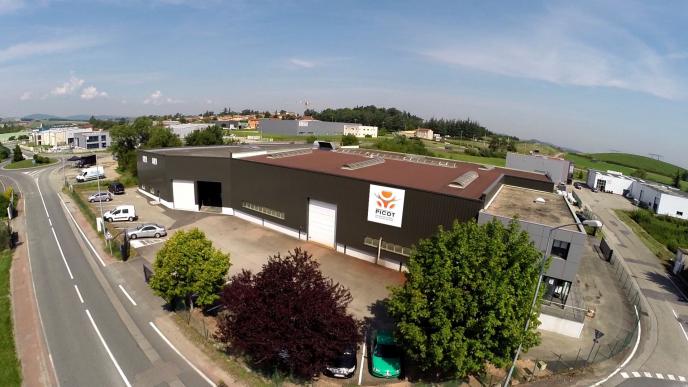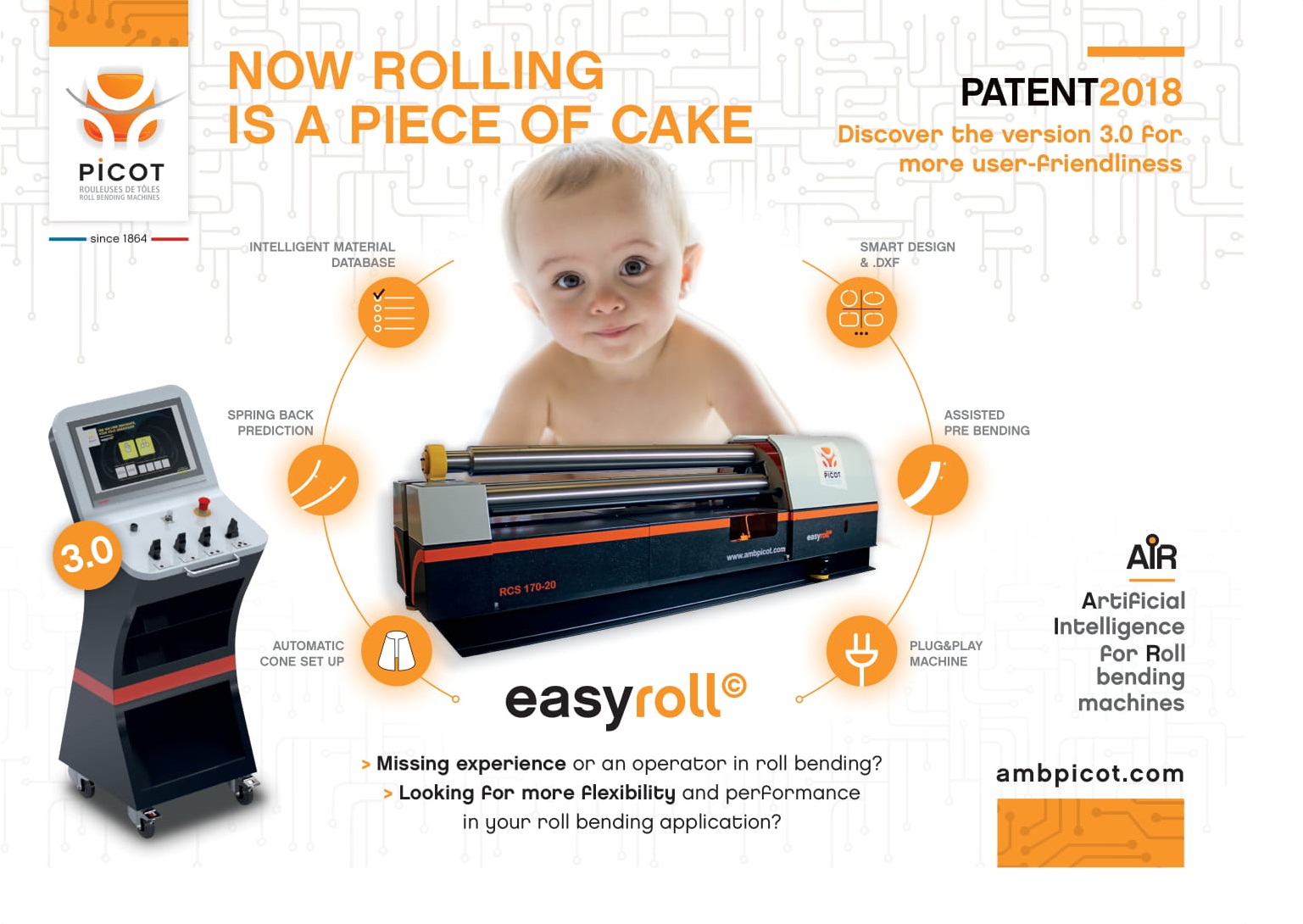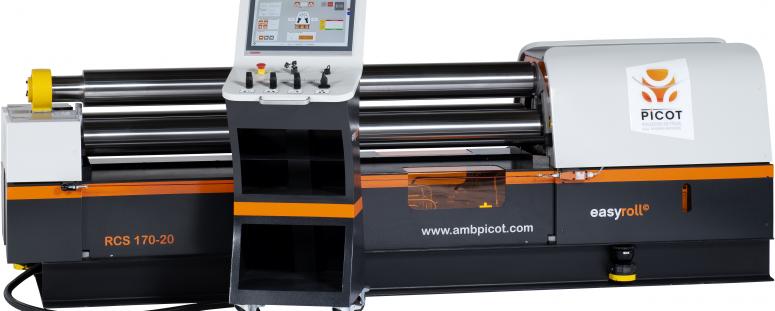AMB Picot has been designing and manufacturing roll bending machines for more than 150 years. Extremly versatile, roll bending machines are used worldwide and in many industry sectors and are suitable for prototyping and small or large series production. All the models can be equipped with numerical control.
The company develops its new products in its design office in the area of Lyon and never stops innovating. Its know-how makes it possible to meet all the requirements whatever the technical constraints.
AMB PICOT provides comprehensive assistance and customer support including application-specific technical aid and makes them benefit from its service offer 100% serenity.

EASYROLL BY PICOT – Artificial Intelligence for roll bending machines
The company has always emphasized the versatility of symmetrical 3-rolls technology that allows a double pre-bending without turning the sheet, does not laminate the sheet and is more precise in the deformation of the material.
However, aware that these machines require special know-how, AMB PICOT has launched the software Easyroll® 3 years ago to help the operator in its rolling operations." This process combines predictive strategy of material behavior and intelligent algorithmy.
Using Easyroll’s simple interface, the operator can draw the parts he wants to make and select the corresponding material. The software then performs the machine program by combining a pre-calibrated material database for the machine (which predicts the mechanical behavior of the material, thus the most suitable rolling process) and rolling algorithms.
This database integrates the most common material data as steel, stainless steel, aluminum, as well as the possibility of adding different materials, such as composites.
The software is constantly evolving. The recent 3.0 upgrade allows the reading of files in .DXF format and the automatic transmission of material corrections to enrich the material database and improve the creation of programs along the way.

Metal-Interface takes great care to protect your privacy: when you submit a request or ask a question, your personal information is passed on to the supplier concerned or, if necessary, to one of its regional managers or distributors, who will be able to provide you with a direct response. Consult our Privacy Policy to find out more about how and why we process your data, and your rights in relation to this information. By continuing to browse our site, you accept our terms and conditions of use.
 Optimise your processes Press release
Optimise your processes Press releaseAMB PICOT : roll bending machines – NOW ROLLING IS A PIECE OF CAKE
Published on 28/10/20
